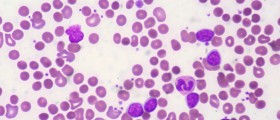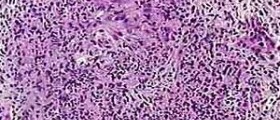
What is Crohn’s disease?
Crohn’s disease is an inflammatory bowel disease or IBD. It’s main characteristic is the inflammation of the lining of the digestive tract, which leads to symptoms such as abdominal pain and cramps, nausea and diarrhea, which can be quite severe. Malnutrition is sometimes seen in people with Crohn’s disease.
The inflammation can spread into deeper layers of affected tissue. The damage it causes, like damage seen in another IBD called ulcerative colitis, can be severe and potentially lead to life-threatening complications.
Crohn’s disease can be very painful and debilitating. Unfortunately, there is no definitive cure for this disease, but there are treatment options that can make the life much easier for people suffering from Crohn’s or even lead to long-term remission.
Therapy for Crohn’s disease
The purpose of medical treatment for Crohn’s is to reduce the inflammation that triggers painful and frustrating symptoms of this disease. The effectiveness of the therapy can range from mild symptom relief to long-term remission of the disease. The therapy mostly includes medications and surgery.
The drugs used for Crohn’s can be of several types. Not all drugs work equally well on all patients with Crohn’s, which is why it may take some trial and error until the right drug is found.
Anti-inflammatory drugs are usually the first option for Crohn’s sufferers. Sulfasalazine is very effective for some patients while in others it has little to no effect. Its side effects may include nausea, headache and heartburn. Mesalamine has fewer side effects and it can be taken either orally or in form of enemas or suppositories.
Corticosteroids are drugs used to suppress inflammation anywhere in the body. However, they have side effects that may involve excessive facial hair, swelling and puffiness, hyperactivity and insomnia. Corticosteroids are not meant for long-term use but they can safely be used for three to four months and they often relieve the symptoms and induce remission. They can also be combined with immune system suppressors.
Immune system suppressors are another group of drugs that are commonly used to treat Crohn’s disease. These drugs also fight the inflammation, but not directly. They target the immune system and suppress the immune response, which leads to reduction of the inflammation. Some of the immune system suppressants used in therapy of Crohn’s disease include azathioprine and mercaptopurine, infliximab, adalimumab, certolizumab pegol, methotrexate, Cyclosporine and natalizumab. Some of these drugs are normally used in treatment of certain types of cancerby affecting tumor necrosis factor or TNF. Like any other drug, they also may cause some more or less serious side effects.

















Your thoughts on this
Loading...